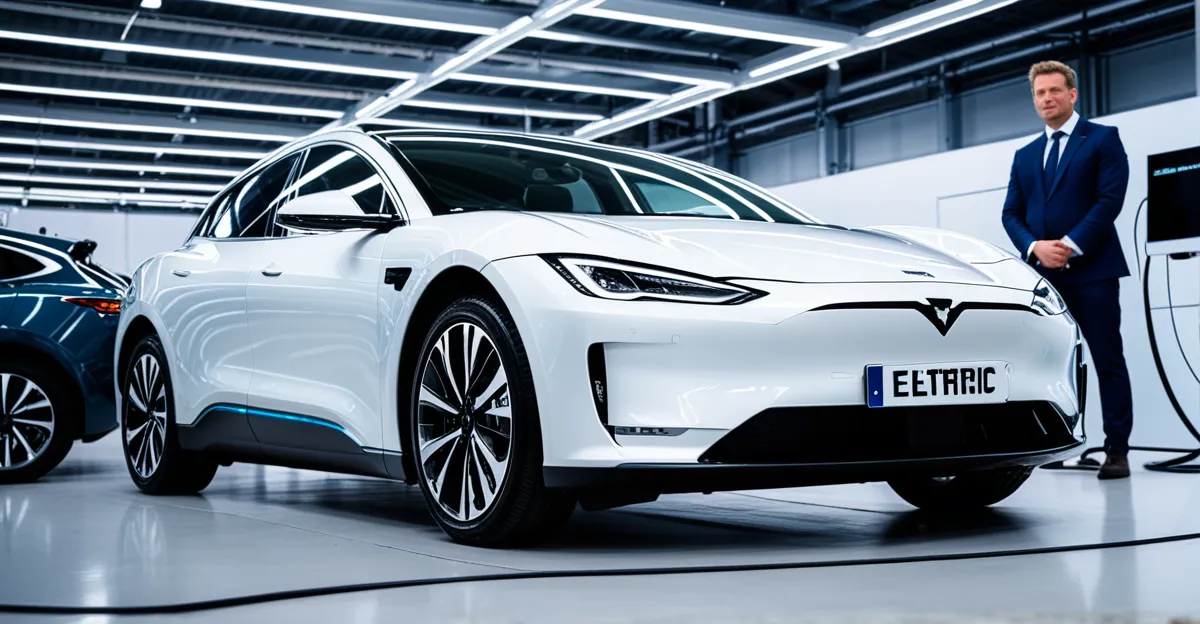Current State of Electric Vehicles in the UK Market
Understanding the UK EV market today reveals dynamic growth driven by consumer interest and regulatory pressures. Electric vehicle adoption has increased remarkably in recent years, evidenced by surging EV sales statistics. In 2023, battery electric vehicles (BEVs) accounted for over 15% of new car registrations, a significant jump compared to just a few years ago.
This growth is not uniform; metropolitan areas like London see higher adoption due to better charging infrastructure and urban incentives. The rising market share for EVs is steadily challenging traditional fuel vehicles, although petrol and diesel cars still dominate overall vehicle numbers. The transition, however, is accelerating as consumers seek lower running costs and environmental benefits.
Topic to read : How Can Electric Cars in the UK Transform Commuting Habits?
Key drivers behind this trend include improvements in range, affordability, and a wider model lineup. Many consumers now view electric vehicles as practical for daily use rather than niche options. As a result, UK EV market growth signals a notable shift away from internal combustion engines.
In short, electric vehicle adoption in the UK is evolving from early adoption toward mainstream acceptance, reinforcing its role as a cornerstone of the country’s automotive future.
Also to see : What role does AI play in the UK automotive industry’s evolution?
Government Policies and Regulatory Environment
The UK EV policy continues to play a pivotal role in shaping electric vehicle adoption. Central to these efforts are government incentives designed to lower the upfront cost of electric vehicles for consumers. These include grants for new EV purchases, reduced vehicle taxes, and subsidies for installing home chargers. Such incentives have been essential in boosting the UK EV market by making electric vehicles more financially accessible.
A key feature influencing the market is the zero emission mandate, which sets strict timelines to phase out petrol and diesel vehicles. This mandate compels manufacturers and consumers alike to transition quicker towards EVs. The UK government’s commitment to banning the sale of new petrol and diesel cars by 2030 underlines this policy’s impact and signals significant regulatory pressure on the automotive industry.
Local initiatives also complement national efforts by expanding infrastructure and offering additional rebates. Together, these policies foster a supportive environment, accelerating EV adoption and aligning with the UK’s broader climate goals. By driving both supply and demand, government policies establish a strong foundation for sustained growth in the electric vehicle sector.
Infrastructure Development and Charging Network
The EV charging infrastructure UK landscape is expanding rapidly, reflecting growing demand. As of 2023, there are over 40,000 public charging points across the country, with a significant push toward increasing rapid charging stations to reduce charging times. These rapid chargers, usually delivering 50kW or more, enable an 80% charge in under 30 minutes, which notably enhances the practicality of electric vehicle adoption for longer journeys.
Investment trends highlight both government and private sector involvement. Major funding initiatives focus on integrating chargers along motorways and within urban centers, ensuring better coverage. However, challenges remain, particularly in rural areas where infrastructure lags behind urban counterparts, potentially limiting the UK EV market’s inclusivity.
Additionally, interoperability between charging networks and payment systems has improved but still requires standardisation to simplify consumer experience. Expansion efforts also consider smart grid integration to manage electricity demand efficiently, supporting the surge in EV usage.
The strategic development of public charging points is crucial for maintaining the upward trajectory in electric vehicle adoption. Without accessible, reliable charging infrastructure, consumer confidence and convenience would suffer, directly impacting the EV market’s growth and sustainability in the UK.
Automotive Industry Strategies and Manufacturer Initiatives
The UK car manufacturers are intensifying efforts in EV production to capitalize on the shifting market. Leading companies are investing heavily in new electric models, aligning with the growing demand in the UK EV market. For example, established manufacturers have announced plans to convert entire production lines from internal combustion engines to electric, demonstrating long-term commitment to electrification.
Automotive innovation is a hallmark of these strategies, as firms focus on improving battery efficiency, vehicle range, and affordability. Collaboration is also key; manufacturers are partnering with tech companies and suppliers to accelerate development and integration of advanced components. These partnerships help reduce costs and share expertise, fostering faster innovation.
As a result, the industry not only supports the transition from traditional vehicles but also drives competitiveness in the electric sector. Investments in infrastructure near manufacturing sites, such as charging points for company fleets, further embody strategic moves to boost EV adoption. Through these coordinated initiatives, UK car manufacturers play a pivotal role in shaping a robust and sustainable future for the electric vehicle landscape.
Environmental and Economic Impact of Electric Vehicles
Understanding the EV environmental benefits is crucial in assessing their role in the UK’s climate strategy. Electric vehicles produce zero tailpipe emissions, substantially lowering local air pollutants compared to petrol and diesel cars. This directly supports the UK emissions reduction targets by cutting carbon dioxide levels and improving urban air quality.
Electric vehicles also reduce noise pollution, which benefits communities, especially in cities. This aligns with broader public health goals, making EV adoption an environmentally sound choice.
From an economic perspective, the UK benefits from growing EV adoption through new job creation in manufacturing, battery development, and charging infrastructure sectors. The shift to EVs stimulates innovation and investment in clean technologies, boosting the green economy and fostering sustainable growth.
Additionally, reduced fuel and maintenance costs offer consumers long-term savings, encouraging wider uptake. Experts emphasize that while initial costs can be higher, the overall lifecycle benefits position EVs as economically advantageous and environmentally responsible.
In summary, the UK EV market plays a vital role in both advancing emissions reduction goals and generating economic opportunities, supporting a cleaner, more sustainable future.
Technological Innovations and Future Forecasts
Technological advancements are key drivers shaping the UK EV market forecast. Innovations in battery innovation focus primarily on increasing energy density while reducing costs and charging times. Solid-state batteries, for instance, promise higher capacity and safer operation compared to traditional lithium-ion cells. This breakthrough could extend vehicle range substantially, addressing one of the main concerns around electric vehicle adoption.
Moreover, improvements in power electronics and thermal management enhance overall efficiency and vehicle performance. Smart charging technology integrated with grid systems enables optimized energy use, reducing strain on infrastructure as EV uptake grows.
Forecasts for the UK EV market anticipate rapid expansion. Experts predict that by 2030, electric vehicles could represent over 50% of new car sales in the UK, driven by stricter policies and growing consumer acceptance. This growth aligns with ongoing developments in battery technology, charging networks, and vehicle affordability.
The combination of EV technology advancements and government regulations creates a favorable environment for sustained market growth. Adopting these technologies not only improves user experience but also supports the UK’s transition to a low-carbon economy through widespread electric vehicle adoption.











